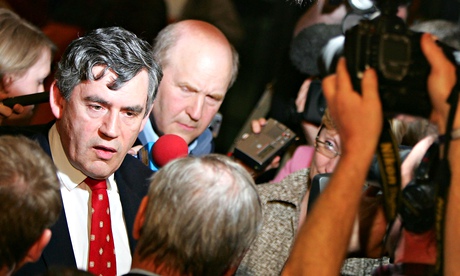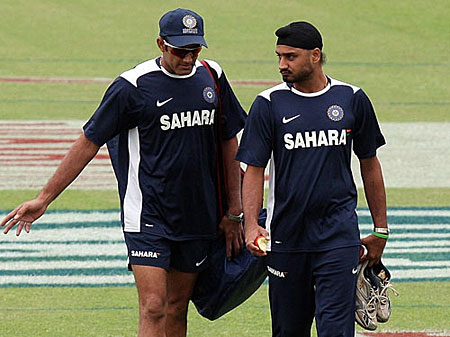Independence would carry the potential to galvanise progressive movements across the rest of the UK

Of all the bad arguments urging the Scots to vote no – and there are plenty – perhaps the worst is the demand that Scotland should remain in the union to save England from itself. Responses to my column last week suggest this wretched apron-strings argument has some traction among people who claim to belong to the left.
Consider what it entails: it asks a nation of 5.3 million to forgo independence to exempt a nation of 54 million from having to fight its own battles. In return for this self-denial, the five million must remain yoked to the dismal politics of cowardice and triangulation that cause the problems from which we ask them to save us.
“A UK without Scotland would be much less likely to elect any government of a progressive hue,” former Labour minister Brian Wilson claimed in the Guardian last week. We must combine against the “forces of privilege and reaction” (as he lines up with the Conservatives, Ukip, the Lib Dems, the banks, the corporations, almost all the rightwing columnists in Britain, and every UK newspaper except the Sunday Herald) – in the cause of “solidarity”.
There’s another New Labour weasel word to add to its lexicon (other examples include reform, which now means privatisation; and partnership, which means selling out to big business). Once solidarity meant making common cause with the exploited, the underpaid, the excluded. Now, to these cyborgs in suits, it means keeping faith with the banks, the corporate press, cuts, a tollbooth economy and market fundamentalism.
Here, to Wilson and his fellow flinchers, is what solidarity meant while they were in office. It meant voting for the Iraq war, for Trident, for identity cards, for 3,500 new criminal offences, including the criminalisation of most forms of peaceful protest. It meant being drafted in as political mercenaries to impose on the English policies to which the Scots were not subject, such as university top-up fees and foundation hospitals. It meant supporting every destructive and unjust proposition advanced by their leaders: the brood parasites who hatched in the Labour nest then flicked its dearest principles over the edge. It’s no surprise that the more the Scots see of their former Labour ministers, the more inclined they are to vote for independence.
So now Better Together has brought in Gordon Brown, scattering bribes in a desperate, last-ditch effort at containment. They must hope the Scots have forgotten that he boasted of setting “the lowest rate in the history of British corporation tax, the lowest rate of any major country in Europe and the lowest rate of any major industrialised country anywhere”. That he pledged to the City of London “in budget after budget, I want us to do even more to encourage the risk takers”. That, after 13 years of Labour government, the UK had higher levels of inequality than after 18 years of Tory government. That his government colluded in kidnapping and torture. That he helped cause the deaths of hundreds of thousands through his support for the illegal war on Iraq.
He roams through Scotland, still badged with blood, promising what he never delivered when he had the chance, this man who helped unravel the social safety net his predecessors wove; who marketised and dismembered public services; who enriched the wealthy and shafted the poor; who pledged money for Trident but failed to reverse the loss of social housing; whose private finance initiative planted a series of timebombs now exploding throughout the NHS and other public services; who greased and wheedled and slavered his way into the company of bankers and oligarchs while trampling over the working people he was elected to represent. This is the progressive Prester John who will ride to the rescue of the no campaign?
Where, in Scotland’s Labour party, are the Keir Hardies and Jimmy Reids of our time? Where is the vision, the inspiration, the hope? The shuffling, spineless little men who replaced these titans offer nothing but fear. Through fear, they seek to shove Scotland back into its box, as its people rebel against the dreary, closed future mapped out for them – and the rest of us – by the three main Westminster parties.
Sure, if Scotland becomes independent, all else being equal, Labour would lose 41 seats at Westminster and Tory majorities would become more likely. But all else need not be equal. Scottish independence can galvanise progressive movements across the rest of the UK. We’ll watch as the Scots engage in the transformative process of writing a constitution. We’ll see that a nation of these islands can live and – I hope – flourish with a fully elected legislature (no House of Lords), with a fair electoral system (proportional representation), and with a parliament in which only representatives of that nation can vote (no cross-border mercenaries).
Already, the myth of political apathy has been scotched by the tumultuous movement north of the border. As soon as something is worth voting for, people will queue into the night to add their names to the register. The low voter turnouts in Westminster elections reflect not an absence of interest but an absence of hope.
If Scotland becomes independent, it will be despite the efforts of almost the entire UK establishment. It will be because social media has defeated the corporate media. It will be a victory for citizens over the Westminster machine, for shoes over helicopters. It will show that a sufficiently inspiring idea can cut through bribes and blackmail, through threats and fear-mongering. That hope, marginalised at first, can spread across a nation, defying all attempts to suppress it. That you can be hated by the Daily Mail and still have a chance of winning.
If Labour has any political nous, any remaining flicker of courage, it will understand what this moment means. Instead of suppressing the forces of hope and inspiration, it would mobilise them. It would, for instance, pledge, in its manifesto, a referendum on drafting a written constitution for the rest of the UK.
It would understand that hope is the most dangerous of all political reagents. It can transform what appears to be a fixed polity, a fixed outcome, into something entirely different. It can summon up passion and purpose we never knew we possessed. If Scotland becomes independent, England – if only the potential were recognised – could also be transformed.


 TFT Issue: 05 Sep 2014
TFT Issue: 05 Sep 2014